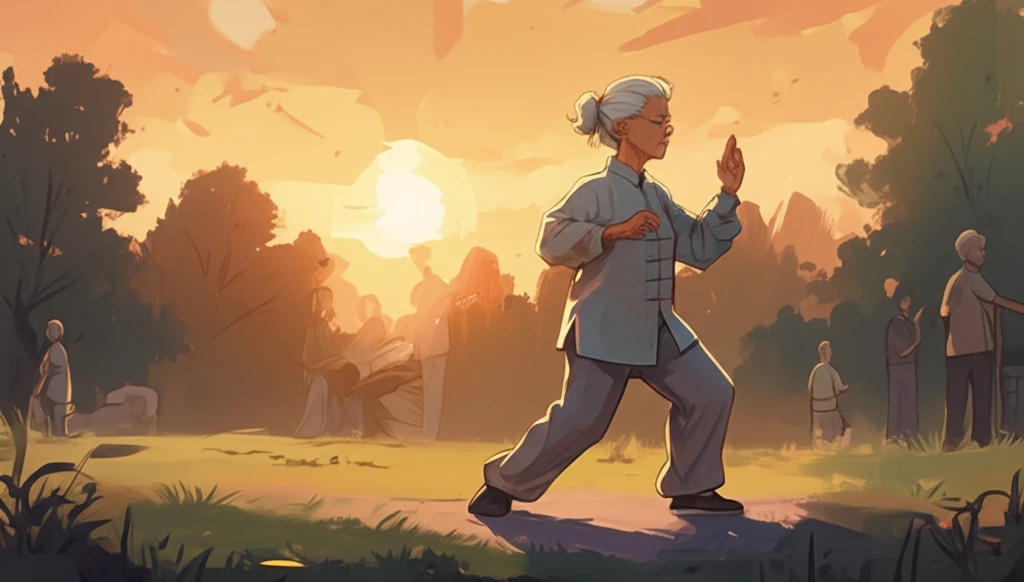
Tai Chi vs. Balance Training: Which Exercise is Best for Preventing Falls?
"A head-to-head comparison of Tai Chi and balance-strength training to determine the most effective method for reducing fall risk and improving mobility in older adults."
Falls are a significant health concern for older adults, leading to injuries, reduced independence, and a decreased quality of life. Finding effective strategies to prevent falls is crucial for maintaining the well-being of our aging population. Exercise is a cornerstone of fall prevention programs, but with so many options available, how do you choose the right one?
Two popular exercise approaches are Tai Chi and balance-strength training. Tai Chi, an ancient Chinese martial art, involves slow, flowing movements and focused breathing. Balance-strength training, on the other hand, typically includes exercises that target specific muscle groups and challenge balance through various activities.
A recent study published in the Journal of Novel Physiotherapies compared the effectiveness of Tai Chi and balance-strength training in reducing fear of falling, improving balance, and enhancing functional mobility in elderly individuals. Let's delve into the findings to uncover which exercise method offers the most benefits.
Tai Chi or Balance Training: Understanding the Benefits

The study, conducted by Chandan Kumar, involved a randomized clinical trial with 60 participants aged 60-80 years. Participants were divided into two groups: a Tai Chi group and a balance-strength (BS) training group. Both groups participated in exercise sessions five days a week for eight weeks. The researchers then measured their fear of falling (using the Fall Efficacy Scale - FES), balance (using the Berg Balance Scale - BBS), and functional mobility (using the Timed Up and Go test - TUG).
- Reduced Fear of Falling: Tai Chi demonstrated a more substantial decrease in fear of falling compared to balance-strength training.
- Improved Balance: Both groups showed improvement in balance, but the Tai Chi group did not show statistically significant changes in balance compared to the strength-training group
- Enhanced Functional Mobility: Tai Chi led to greater improvements in functional mobility, making everyday tasks easier to perform.
Tai Chi: A Holistic Approach to Fall Prevention
This study reinforces the idea that Tai Chi is a valuable tool for fall prevention in older adults. Its combination of gentle movements, mindfulness, and balance challenges makes it a holistic approach to improving physical and mental well-being. If you're looking for an exercise program to reduce your risk of falling and improve your overall quality of life, Tai Chi may be the perfect choice.
